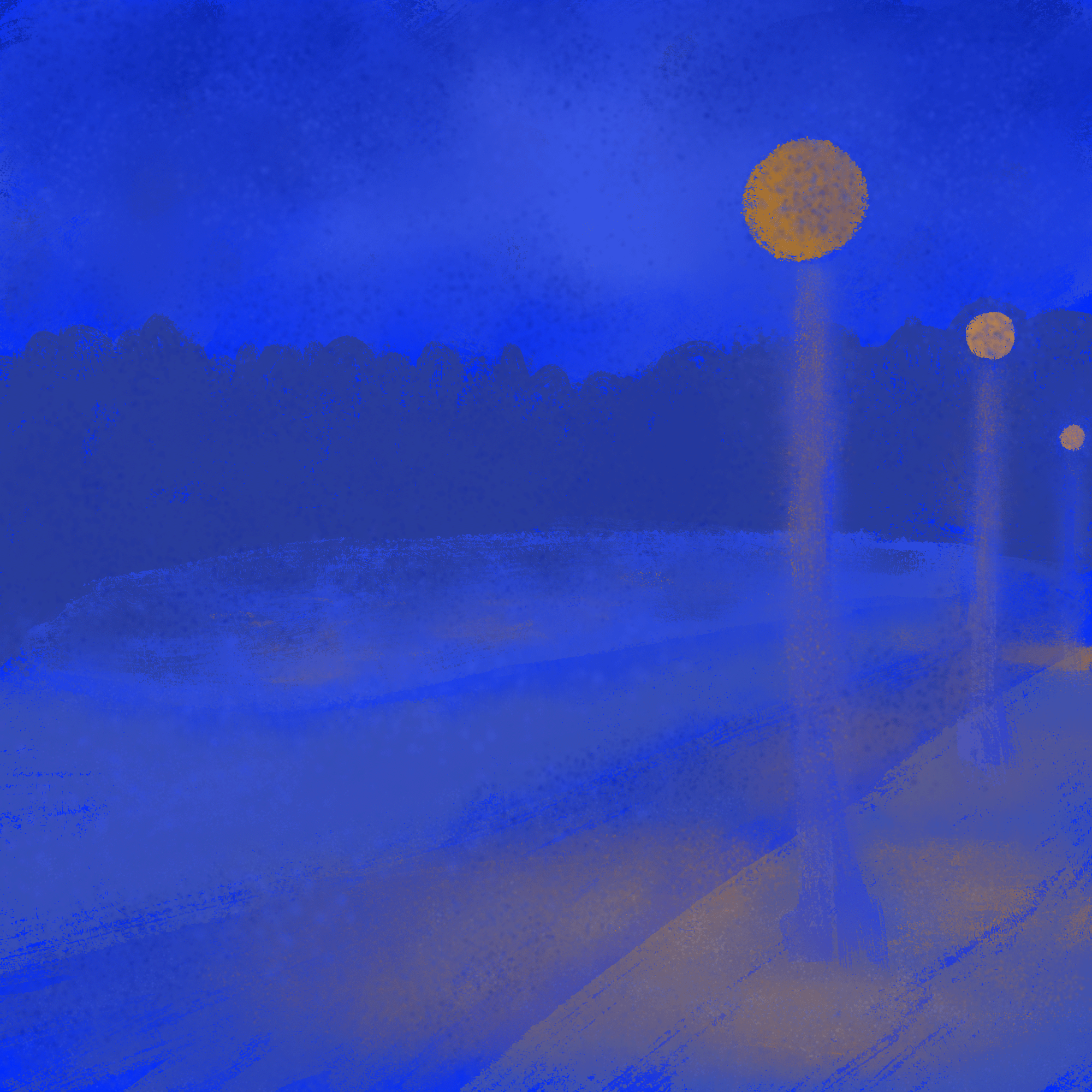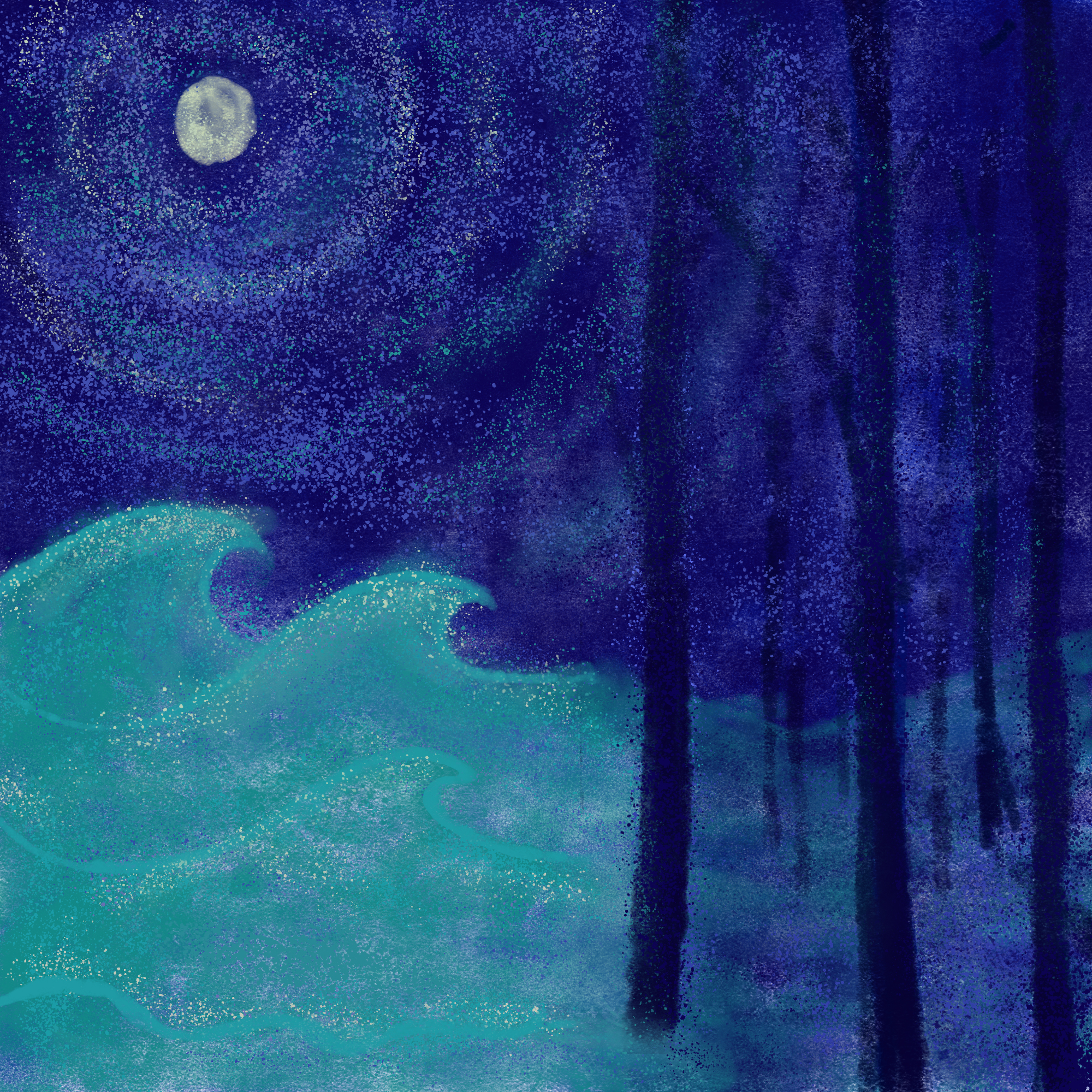
Illustration by Katharina Davoudian
Forgetting
Polina Karpenko
November 18, 2024
The park feels different. I don’t immediately recognize that it’s the same place I often visited. Even I, knowing every stone here, feel like I’m here for the first time.
If you look closely, you can see familiar outlines of trees merging with the dark sky. The moon is hidden behind the clouds, giving off no light. Streetlights are the only ones illuminating the park. I know that many scary stories are associated with darkness or desolate parks, but I don’t feel afraid of this place. I feel a strange calmness again.
Looking at the well-worn paths, I imagine the people who walked along them. There is a young couple sitting and perhaps planning their future together, there are seniors feeding pigeons with bread, a man walking his dog. They are all ghosts of the past, strangers who remain in my subconscious.
I notice a pond, so familiar, so painfully familiar. As I get closer to it, old, long-forgotten memories come flooding back to my mind…
It was an ordinary summer day.
“Kate, be careful! There’s a bee near you!” a familiar voice called out.
I turned my head sharply to the right, then to the left, but there was no insect. I felt dizzy.
“She’s joking,” said another voice.
I looked at Melanie, who was smiling smugly because I had fallen for her silly joke.
“Now you’re going to set the picnic up yourself,” I told Melanie.
Her face turned gloomy, “It’s not fair! Everyone has to help!”
Melanie looked at Anna for support, although all that was left to do was lay out the picnic blanket.
“The first one there gets to rest!” Anna exclaimed.
Picking up our things, we ran laughing to the tree where we had planned our picnic.
I look again at the pond, which seems like a swamp in the lack of light. I feel an emptiness. It sucks all the energy out of me, but my legs lead me deeper into the park. Now I see three schoolgirls picking berries from the bushes. From bushes that had just been without leaves. The schoolgirls have already rushed to the garden and are mimicking statues. It makes them laugh.
Suddenly, they notice a squirrel, and the schoolgirls bait it with nuts, but being frightened by it, they run away.
Trees. Trees suddenly grow around me. I have a feeling that I lost something, lost it a long time ago. These girls will never meet again, smile at each other, or invent different adventures together. They remain only in my memories. These ghosts will forever haunt me in this park. I will become a prisoner of these memories until they swallow me alive.
What is it? Is it a bird? Why is it chirping in the night? Some kind of sign? I look around. The bird pulls me out of my thoughts and makes me realize something. A few minutes later, I walk out of the park, leaving the laughter of my friends behind. I walk out of the park without looking back.
Polina Karpenko is a high school student in Toronto. Polina was born in Kyiv, Ukraine. She moved to Canada in 2022 because of the war. She likes to read books, most of them psychological and detective stories. She also likes to write stories and “Forgetting” is her debut story.


